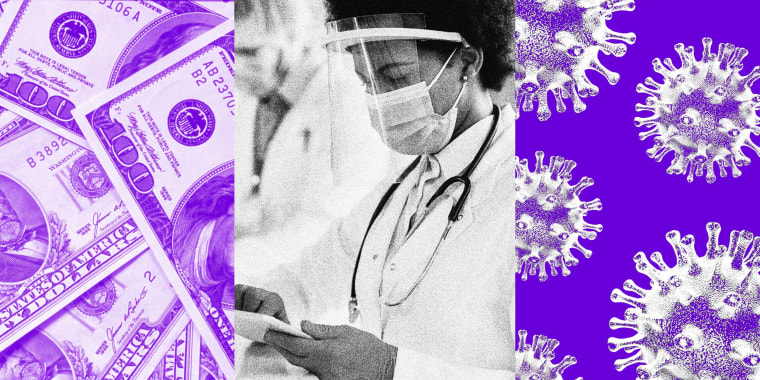All the talk I’ve been hearing about "Covid fatigue" and the cascade of East Coast governors lifting mask mandates is evidence that many Americans wish we could just move beyond the pandemic.
But we can’t truly move beyond the pandemic until we talk about "Covid reparations," or compensation for the people who’ve suffered (and continue to suffer) the most because of government failures and historic inequality. For example, there’s overwhelming evidence Black, Latino and Indigenous people have been disproportionately killed by Covid. The idea of Covid reparations isn’t new, and it’s swirled furiously through my mind over the past 23 months, seeing sirens flash and funeral processions pass with unnerving frequency.
The first year of the pandemic, the U.S. response was led by a maniacal president who appeared to deliberately let the virus spread and do damage, so the number of people who could collect on Covid reparations would surely be in the multimillions. But that shouldn’t hinder us from considering how reparations could be implemented. All who endured the Trump administration’s incompetence, families of those who didn’t, and anyone still coping with the government’s lingering Covid-related issues deserve pay.

“Covid has exposed the cracks in every one of our social institutions in this country,” said Dr. Uché Blackstock, an MSNBC contributor and founder of Advancing Health Equity, an organization for medical activism. The solution, she said, is reparative policies that don’t just target Covid but also the “social determinants of health" — inequitable aspects of our society that worsen health conditions, particularly for Black people and other minorities.
In this context, Blackstock said, Covid reparations could look like an expansion of Medicaid to ensure marginalized people receive health care; an expansion of paid sick leave for long Covid sufferers; home financing to help the unhoused and those who saw changes to their living condition due to Covid; and more.
There are already signs some legislators may be considering this. As I mentioned a couple weeks back, Democratic Reps. Don Beyer and Ayanna Pressley recently called on the Centers for Disease Control and Prevention to investigate Covid’s long-term effects on marginalized groups “in order to inform policymaking and protect the public’s health.”
And it’s entirely possible those health solutions take the form of policies Blackstock mentioned. In our conversation, she spoke about the essential role Black physicians have played and will play in making sure marginalized Covid patients are heard — even as the country looks to move past the pandemic.
“Many of us have gone into medicine because we recognize the inequities and we recognize how racism impacts Black communities,” she said. “So for a lot of us, health care work and activism are one in the same.”
Related posts:
Gosar whines over Jan. 6 committee subpoenaing his white nationalist buddy
Kyrsten Sinema raked in hefty GOP donations while opposing Biden’s agenda
Sarah Palin is out for blood with long shot NYT defamation lawsuit
Head over to The ReidOut Blog for more.
